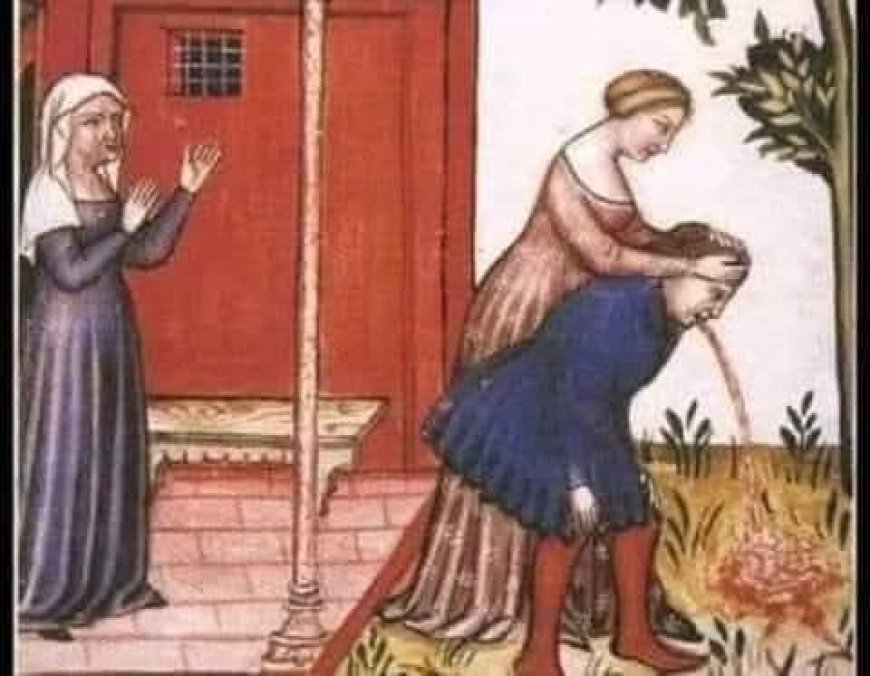L'origine de l'histoire
Au Moyen Âge, dans une ville française, les femmes donnaient à leurs maris un poison dilué dans leur repas du matin. À leur retour à la maison, elles leur administraient l’antidote en début de soirée, ce qui empêchait le poison d’avoir un effet nocif sur eux.

في القرون الوسطى في إحدى البلدات الفرنسية كانت النساء تحصلن على سُم مُخفف يضعنه في طعام الرجل في الصباح و عند عودته يقومون بإعطاءه المُضاد في بداية الليل فلا يُؤثر هذا السم على الرجل و لكن !
في حالة عدم رجوعه إلى البيت و مبيته في مكان آخر يتأخر حصوله على الترياق فيُصاب الرجل بصُداع و غثيان و ضيق تنفس و كآبة و آلام و كلما زادت فترة غياب الرجل عن بيته كلما زاد تأثير السم و عند عودته إلى منزله تُعطيه زوجته الترياق دون علمه فيتحسن حاله في غضون دقائق و كان الرجل يُخدع بهذه الحيلة فيُخيل له أن البُعد عن المنزل يُسبب له ألم و كآبة و غثيان، فيزداد تعلُقاً بمنزلهِ و زوجته.
The Origin of the Story
In the Middle Ages, in a certain French town, women used to give their husbands a diluted poison in their morning meal. Upon their return home, they would administer the antidote at the beginning of the night, ensuring that the poison had no harmful effect on the man.
However, if the man did not return home and spent the night elsewhere, he would not receive the antidote on time. As a result, he would suffer from headaches, nausea, shortness of breath, depression, and pain. The longer he stayed away from home, the stronger the effects of the poison became.
Upon his return, his wife would secretly give him the antidote, and within minutes, he would feel better. The man, deceived by this trick, would believe that staying away from home caused him pain, sadness, and nausea. Consequently, he would grow more attached to his home and his wife.
L'origine de l'histoire
Au Moyen Âge, dans une ville française, les femmes donnaient à leurs maris un poison dilué dans leur repas du matin. À leur retour à la maison, elles leur administraient l’antidote en début de soirée, ce qui empêchait le poison d’avoir un effet nocif sur eux.
Cependant, si l’homme ne rentrait pas chez lui et passait la nuit ailleurs, il ne recevait pas l’antidote à temps. Par conséquent, il souffrait de maux de tête, de nausées, de difficultés respiratoires, de dépression et de douleurs. Plus son absence durait, plus les effets du poison s’intensifiaient.
À son retour, sa femme lui donnait secrètement l’antidote, et en quelques minutes, il se sentait mieux. Trompé par cette ruse, l’homme finissait par croire que s’éloigner de chez lui lui causait douleur, tristesse et nausée. Ainsi, il devenait de plus en plus attaché à sa maison et à sa femme.





















